Technology Partners employees with Ukrainian ties do their part to help family members back home
For Ola Voytovych and Tatiana Kobasa – employees of the St. Louis-based company Technology Partners – it’s difficult to remember how a normal workday started prior to Thursday, Feb. 24.
Now they begin with emotional, sometimes heartbreaking, morning Facebook Messenger calls with their family members in western Ukraine.
Ola’s father and mother refuse to leave their home – even as the Russian invasion of Ukraine intensifies and stretches into its third month. They built their home and say, “we would rather die here than leave,” Ola shares.
Tatiana touches base with her family members every morning, as well. Her grandparents and many of her other relatives live in the western city of L’viv. Adding even more significance to the harrowing situation, her half-brother fights on the frontlines as part of the Armed Forces of Ukraine. He was one year into training when the invasion began.
“A few of my family members were lucky enough to get out,” she says. “I have a lot of other family members who refuse to leave. My female cousins and aunts don’t want to leave their husbands who have been required to stay by the Ukrainian government. “Their thought is, ‘If I die here, I die for my country.’”
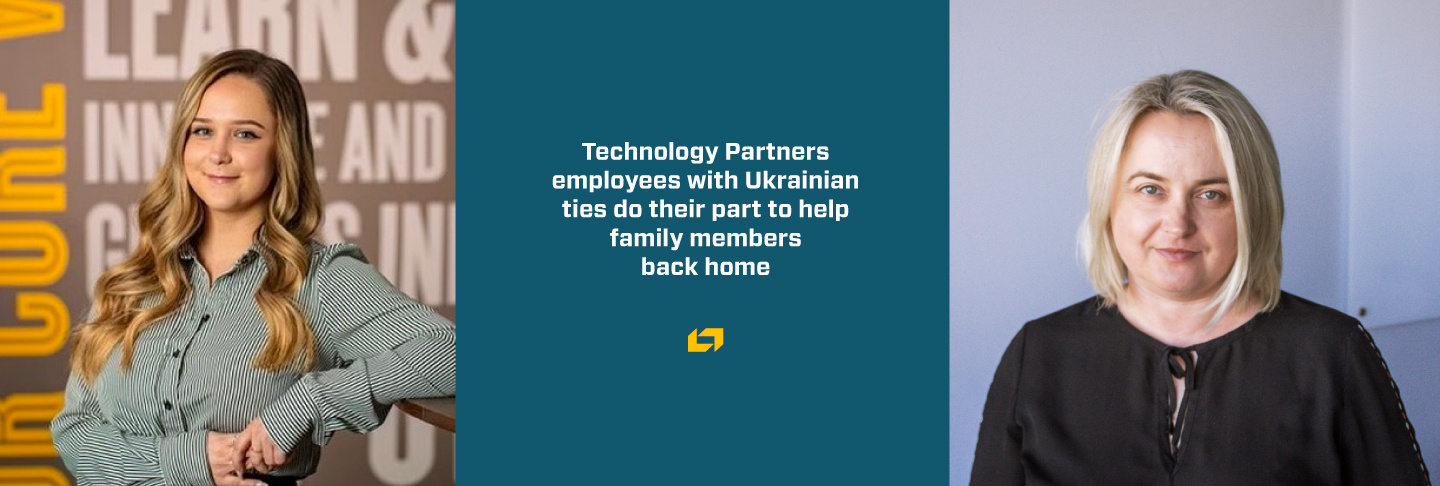
Ola’s Story
Ola (pronounced Ol-ya) is an accounting associate for Technology Partners, helping with accounts payable, accounts receivable, and payroll. She’s always been good with numbers, which makes counting each day of the atrocities in Ukraine even more difficult.
“My parents are still there,” she says. “Cousins, nephews, nieces. Some have left for other countries like France and the Netherlands. One of my cousins is a doctor and is needed very much right now in Ukraine. It’s very sad.”
Most of Ola’s family is in the western part of Ukraine, which has remained relatively conflict-free compared with the eastern and southern parts of the country. “My parents still hear airstrikes multiple times per day,” Ola says. “A few weeks ago, a bomb fell two miles from their house.”
Ola grew up in Ukraine and moved to the United States in 2005 at the age of 27. Her parents have taken the 11-hour flight to St. Louis multiple times to visit.
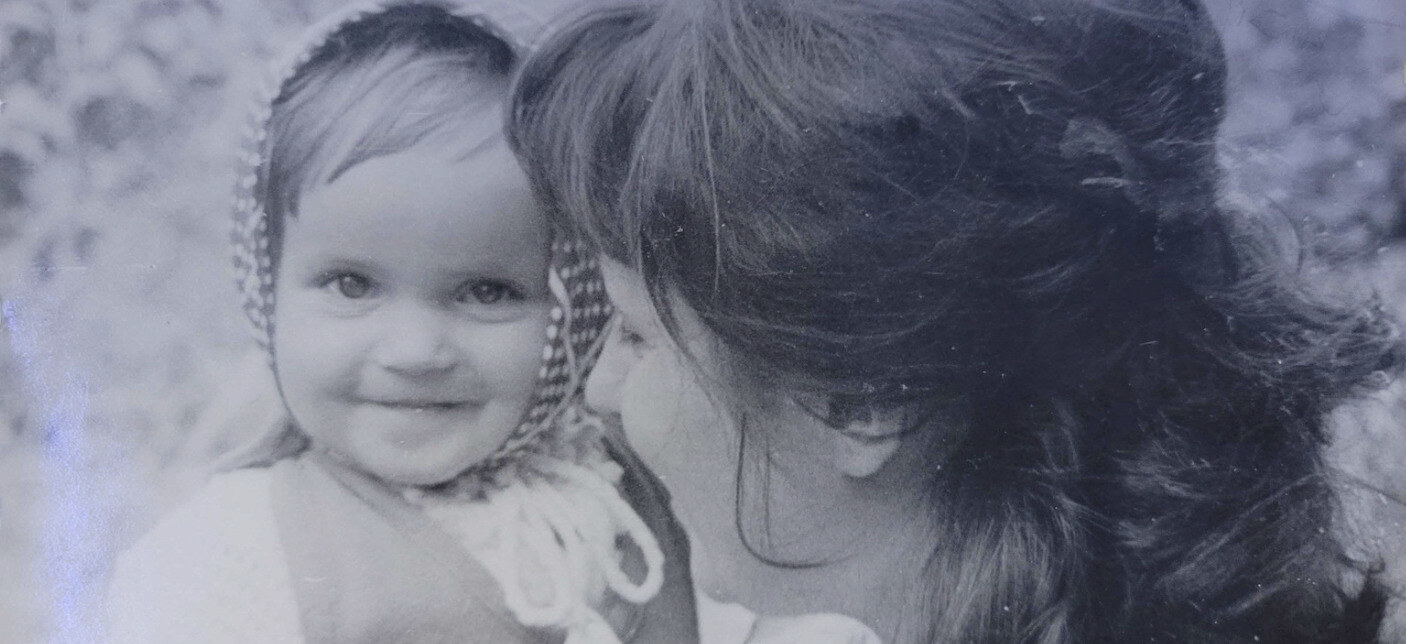
“I talk with my mom every morning before I start work…I want to have them next to me, but they refuse to leave,” Ola says. “They built their home and are going to stay.”
Ola says the stress of watching the news 24/7 is nearly unbearable. “People are being executed in cold blood,” she says through tears. “Men, women, kids. It is very painful. We prefer to talk about it and spread awareness, even though sitting home and crying would be easier.”
Ola looks to the United States government and corporate America to enhance their support of the Ukrainian people. She regularly sends her family money but says larger, more comprehensive efforts are needed to make an immediate impact.
“Ukraine needs arms, ammunition, medical supplies, and more,” she says. “The American government should be supporting Ukraine with planes and air defense systems. There should be more done around the humanitarian issue that is unfolding. Thousands of refugees are waiting for parole to enter the United States and other countries.
“In America, we are worried about rising gas prices. I ask myself, ‘how can we worry so much about things like this and be so vocal about it, when not very far away there are women and children dying in cold blood?’ It’s very painful.”
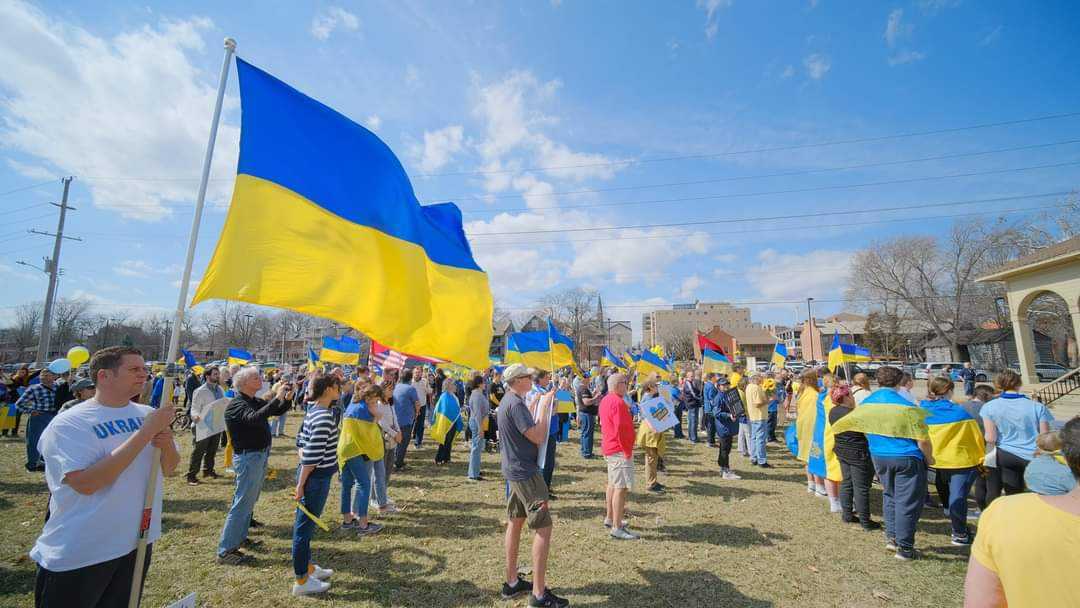
Tatiana’s Story
Currently an executive assistant at Technology Partners, Tatiana was born in the United States. Her parents earned a Green Card to move to the U.S. from Ukraine in 1999 when her mother was pregnant with her.
“I am an American, but culturally I grew up Ukrainian,” she says. “It was my first language because growing up my parents didn’t know English very well. Even to this day, we eat Ukrainian food. We celebrate Ukrainian holidays. We see our Ukrainian friends almost every weekend.”
Tatiana has visited Ukraine a few times. She says the Ukrainian community in St. Louis has always been a pillar of support and is standing even stronger now.
“It’s great to see people step up,” she said of the awareness events that have been taking place nearly every weekend in St. Louis. “Ukrainians will literally do anything to stand up for their country. There is such a national pride that has been very apparent since I was little. Their bravery and love for each other is very inspiring.”
Tatiana’s voice shakes when she talks about her half-brother fighting on the frontlines against the Russian invasion. She isn’t sure where he’s stationed from day to day and relies on updates from other family members in Ukraine when she can’t get in contact with him.
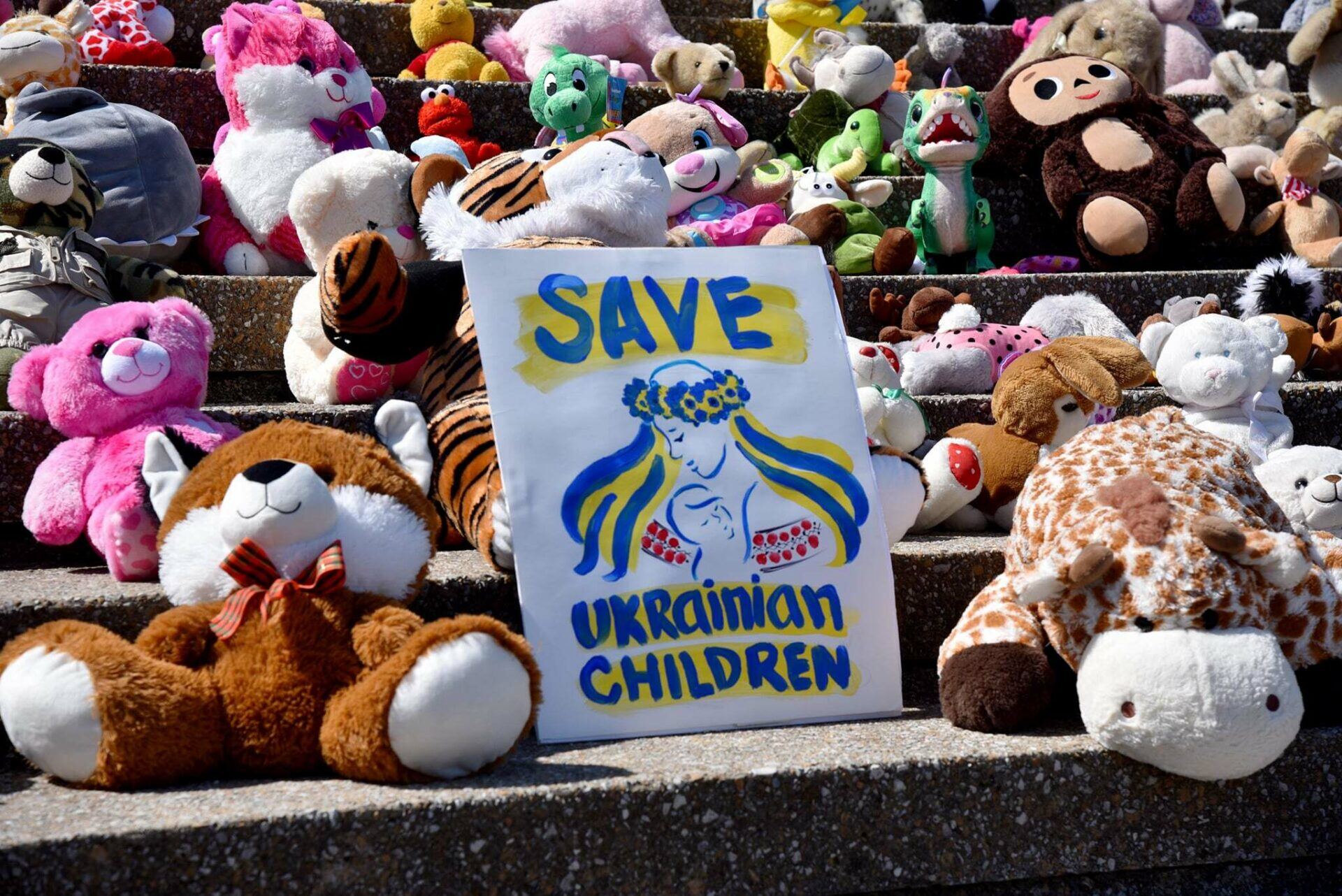
“The scariest part for me has been checking my brother’s status on Facebook Messenger,” Tatiana says. “If I see he’s active, I know he’s alive. In the second week of the war, there was a period of 16 hours where he was inactive, and we couldn’t get ahold of him. Your mind starts racing and you panic a little bit. It turned out that he lost wi-fi for that period of time and was OK.
“That’s another part of the anxiety: Not knowing where he is. I remind myself that this might be a good thing because knowing his location might cause me even more stress. I would likely watch the news constantly for the city he is in wondering if he is safe or not.”
Tatiana says her emotions range from helplessness to anger throughout any given day. She worries about the short- and long-term impact of Russia’s military invasion and wants what all Ukrainians want: Peace.
“At first, I couldn’t focus on my day-to-day life,” she says. “There was an anxiety that hit so hard. What the Russians are doing isn’t right. They are targeting civilians now with incredible horrors – innocent people. I don’t have the words.”
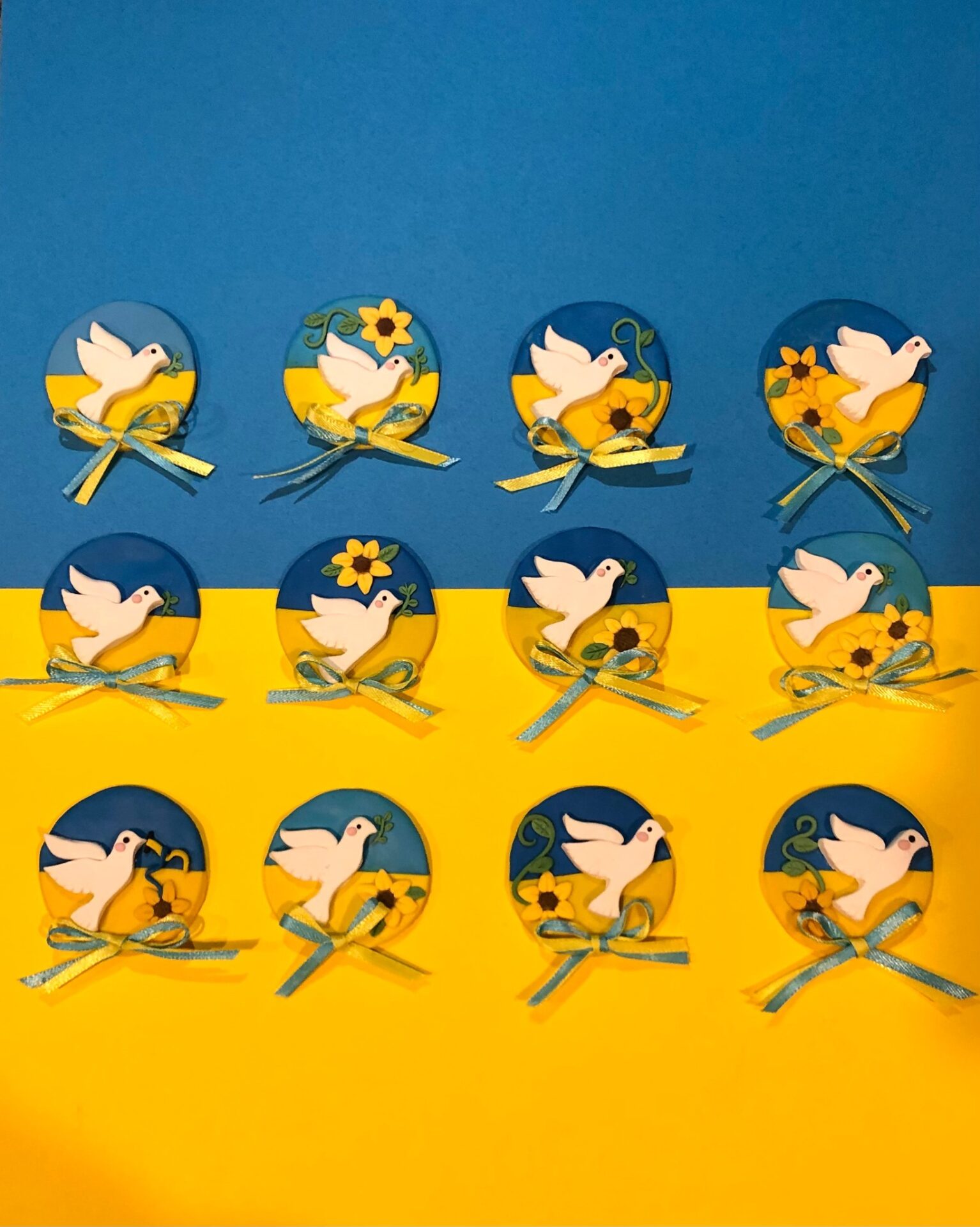
She might be at a loss for words, but Tatiana is taking action. Along with sending money to her family, she has started creating handmade pins and magnets out of clay to raise donations for St. Louis-based nonprofits focused on helping the Ukrainian people abroad.
“When things like this happen, it gets a lot of news coverage for the first few months and then goes away,” she says. “I’m afraid of that happening in this case. We need to talk about the awful things that are happening. It is critical to keep raising awareness at this point.”
Helping Ukraine
At Technology Partners, we recently announced two separate donations of $10,000 to relief-focused charities chosen by Ola and Tatiana. Additionally, to celebrate International Women’s Day in March, we sent all of our female employees a gift from Prosperity Candle, which produces candles handmade by refugee women artisans.
The company’s mission has positively impacted the lives of hundreds of women and refugees. For many of the artisans, this is their first job outside a refugee camp. Additionally, 100 percent of the profits from the candles purchased by our company were donated to efforts to help Ukraine.
Looking to step in? There are hundreds of Ukrainian-focused nonprofits helping the country through these traumatic times. This recent article by NPR has a full list of vetted organizations.




